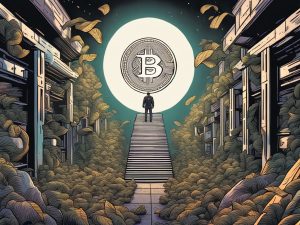New Proposal for Fungible Tokens on Bitcoin Network
Casey Rodarmor, the creator of the Bitcoin Ordinals protocol, has introduced a new protocol called “Runes” for fungible tokens on the Bitcoin network. Unlike digital collectibles like BRC-20, this protocol aims to minimize the accumulation of “Junk” on the Bitcoin network.
What are Fungible and Non-Fungible Tokens?
Fungible tokens are divisible and non-unique assets, such as fiat currencies or cryptocurrencies like Bitcoin. On the other hand, non-fungible tokens (NFTs) represent ownership of unique items. NFTs have gained popularity in the form of digital collectibles.
BRC-20 and Bitcoin Ordinals
Earlier this year, Casey Rodarmor introduced a protocol for non-fungible tokens using Bitcoin Ordinals. Inspired by this and Ethereum’s ERC-20, another developer created BRC-20 standard tokens for unique and interchangeable tokens on the Bitcoin blockchain. However, BRC-20 NFTs have lost their initial market hype.
The Runes Protocol: An Alternative to BRC-20
Casey Rodarmor has now proposed the Runes protocol as an alternative to BRC-20. The main difference is that Runes aims to minimize the creation of “junk” UTXOs (unspent transaction outputs), which was an issue with BRC-20. Rodarmor believes that a well-designed fungible token protocol can add value to the Bitcoin network.
Hot Take: Runes Protocol Offers Improved Fungible Token Solution
With his new proposal for fungible tokens on the Bitcoin network, Casey Rodarmor aims to address the issues faced by previous protocols like BRC-20. By minimizing the creation of “junk” UTXOs, the Runes protocol offers a more efficient and responsible solution. While scams and memes have plagued many fungible tokens, Rodarmor believes that the right protocol can bring value to the Bitcoin network. The development of Runes-based tokens and trading is expected in the near future.





 By
By
 By
By
 By
By
 By
By
 By
By
 By
By